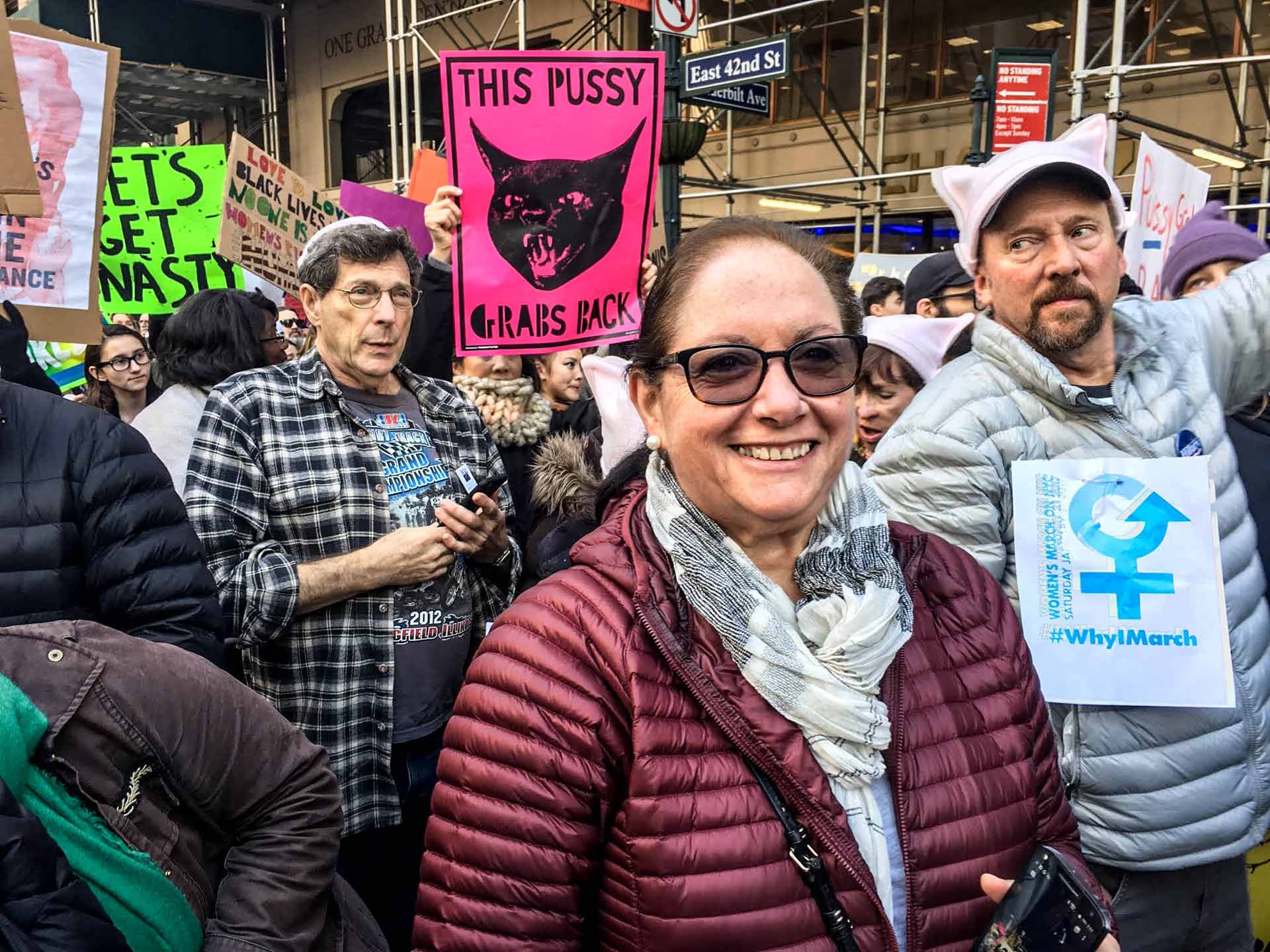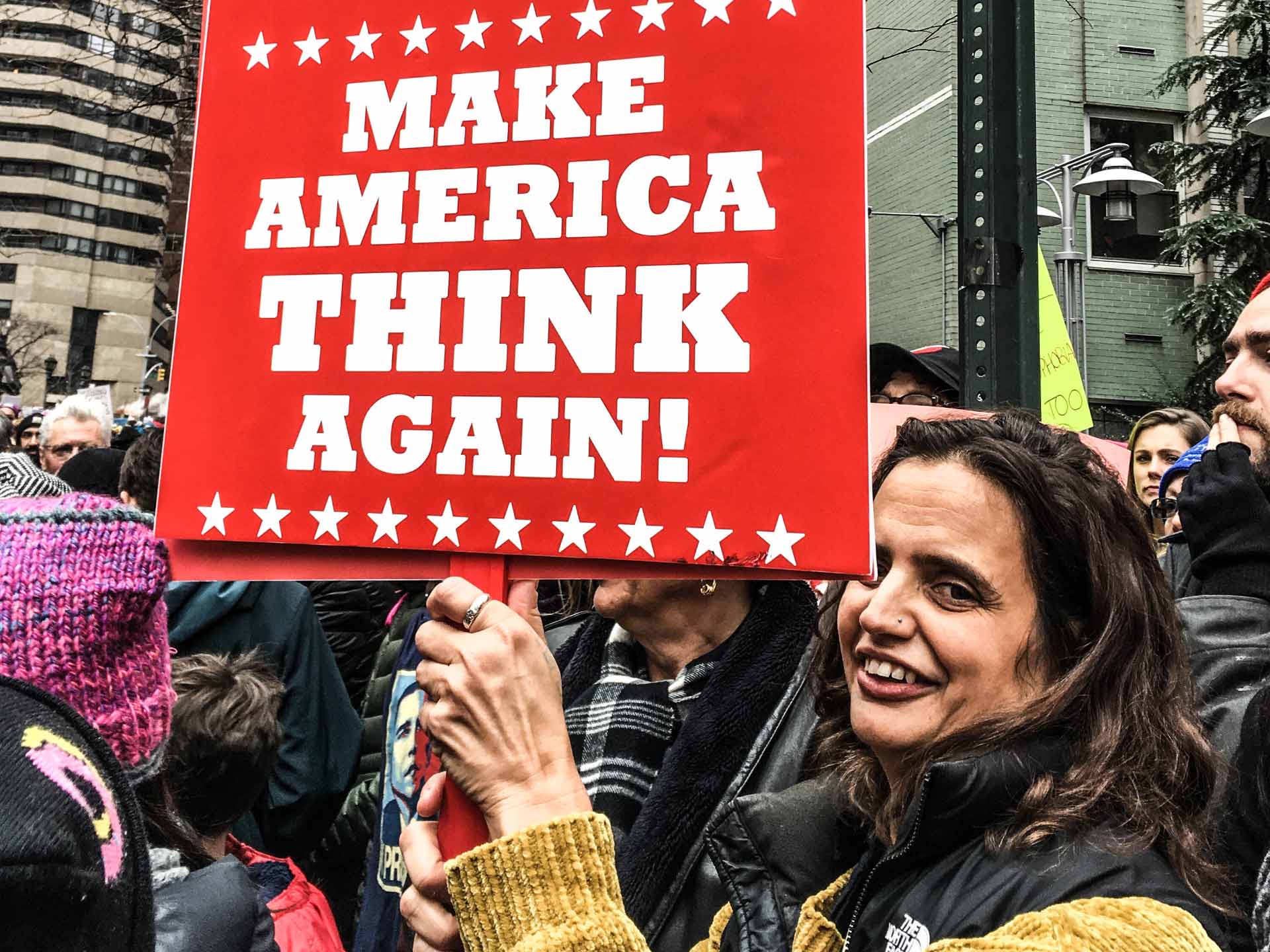SOME REFLECTIONS ON THE NEW ‘NEW NORMAL’
by Joseph Cancelmo

“As analysts,
perhaps we can think
of it as concreteness;
an offloading of one’s ego
ideal in order to merge
with an idealized,
powerful figure,
or maybe a profound
failure of empathy,
perhaps a retreat from
the depressive position
to the paranoid-schizoid,
or of basic assumption
thinking rooted
in the earliest
of anxieties.”

“And like the stages
of grief and mourning,
at some point,
we begin to live life
in our New Normal“.
Sitting down to write these words on Inauguration Day felt like the exact right thing to be doing. For this is another inaugural — of ROOM. Perhaps we can even consider it the IPTAR Alt-Inaugural. Of course, ROOM is meant to be the antithesis of the Alt political movement: the mission here is to carve out a collaborative thinking space in the face of what feels to many of us the emergence of the unthinkable, the unimaginable.
But even for those citizens who voted for he who, for the moment, shall not be named (with apologies to Voldemort), this is also the arrival of the unimaginable. For nearly half of the population, however stratified, the election of their man who spoke to the most base of impulses and paranoid anxieties with his promise of protection, served up with a side order of their stolen piece of the American pie, this is a day of unimaginable jubilation.
All manner of ignorant, deluded and nefarious intentions have been ascribed to the casting of such a vote. But as analysts, perhaps we can think of it as concreteness; an offloading of one’s ego ideal in order to merge with an idealized, powerful figure, or maybe a profound failure of empathy, perhaps a retreat from the depressive position to the paranoid-schizoid, or of basic assumption thinking rooted in the earliest of anxieties. It does help to try to make some psychoanalytic sense of all this; but observing our reactions to the others’ position has to be part of the puzzle. I find myself working hard to stay on that tract, to keep to this analytic highroad. To paraphrase Michele Obama, perhaps ‘When they go shallow, we must go deep’ – in the Psychoanalytic sense. But here too, we need to go not only deeper but broader than our dyadic analytic constructs — to the dynamics of field and systems theory, to the larger world and its impact on us, and our impact on it.
From this perspective, today feels like another pivotal day in the trajectory of our country: September 11, 2001. But there are crucial differences at play here.
With 9-11, we were united within our country against some external force that was a threat to our democracy, to our very way of life. Americans of every stripe and circumstance felt the containment of a societal structure and function — a collective we that could be relied upon, that had our back. We were not left alone to cope with our New Normal.
Luckily for us, this structure provided what ‘terror management’ experts say is the antidote to such implosions from without– impingements to our intrapsychic life that can affect our internalized holding/soothing structure. But in this current situation, we may feel as if we are very much left to our own devices, have been left abandoned by rational discourse — the very safeguards that our social structures provide. The link to our internalized family, the ‘bred in the bone’ experience of society as first articulated in our childhood homes, can feel threatened as a result. When family members or longstanding friendships literally hold diametrically opposed views of this election outcome, the disorientation feels like a permanent state. But the operative word here is feel.
It seems that this is where we are at this moment — waking up from a nightmare to the notion that we are not alone. This is societal structure in itself. If you feel like one of the walking wounded, you are in a group. If you can identify your feelings and begin to think together about how to regain some of what feels lost – the sense of order, rationality, morality, decency, egalitarianism, and equality – than it has been identified. It is not truly lost. If media predictions about the size and scope of tomorrow’s protest marches are even remotely true, we will get a big assist with this next step.
So in thinking about the importance of this endeavor at this pivotal moment, conceived by Hattie Myers, I recalled our earlier collaboration at a critical point in time. Along with her then Co-Director of the IPTAR Clinical Center, Joan Hoffenberg, and with our colleague Issac Tylim, we mounted a conference in early 2002 we called Terrorism and the Psychoanalytic Space: International Perspectives from Ground Zero. (Proceedings published by Pace Univ. Press with cover Art by renouned Artist Nicole Eisenman; also available on Amazon Books).
The reason for going outside of our circle of trauma here in NYC back then was to get help with thinking about our unthinkable. We all felt too close to the experience to process it. When it comes to terror management, you need a shoulder attached to a living structure you can rely on, a thinking partner at both the micro and the macro level.
So it seems we are back here again. And in some uncanny way, our International friends, those who watched Brexit unfold, or watched Berlusconi’s antics, or Erdogan’s tentacles, to name just a few examples, have a lot we can learn from. And as analysts we can also lean on, learn from each other, in our own institution, and in our profession. This newsletter can help us think the unthinkable.
Thanks to all who have made it happen.
- Joseph Cancelmo is a Training and Supervising psychoanalyst and Chair, The L.J. Gould Center for Systems-Psychoanalytic Studies at IPTAR. Email: joecancelmo@gmail.com
- Photo: This Pussy Grabs Back by Suheir Hamden
ROOM is entirely dependent upon reader support. Please consider helping ROOM today with a tax-deductible donation. Any amount is deeply appreciated. |






